Recent Blog Posts
Can Bankruptcy Help Prevent a Home Foreclosure?
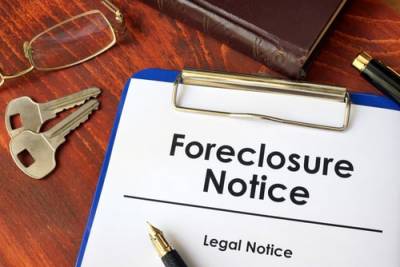
Homeownership can be very rewarding, and a home is often one of the best financial investments an individual or married couple can make. Unfortunately, a family can encounter financial setbacks that may affect their ability to make ongoing mortgage payments. Defaulting on a mortgage may put a homeowner at risk of foreclosure, and in addition to potential financial losses, they may be concerned about their family's ability to continue living in their home. However, there are options available for homeowners who are facing these difficult situations. Filing for bankruptcy is one such option, and it can provide a family with some much-needed protection from creditors while providing them with options that will allow them to maintain ownership of their home.
How Does Disposable Income Affect a Chapter 13 Bankruptcy?
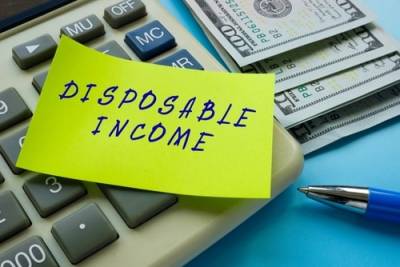
If you are considering filing for bankruptcy, you have multiple options. Chapter 13 bankruptcy may be the preferred choice in situations where you want to avoid the loss of your assets or where you wish to avoid foreclosure and maintain ownership of your home. In a Chapter 13 bankruptcy, a repayment plan will be created, and you will make ongoing payments toward this plan for several years. If your income is below the median income in your state, your repayment plan will last for three years. If your income is above the median, you will be required to make payments for five years. The amount you will be required to pay will be based on your disposable income. However, the process of calculating your disposable income can be complicated, and you will need to understand the factors that may affect the amount you will pay and your ongoing financial concerns.
How Are Unsecured Debts Handled in Chapter 7 Bankruptcy Cases?
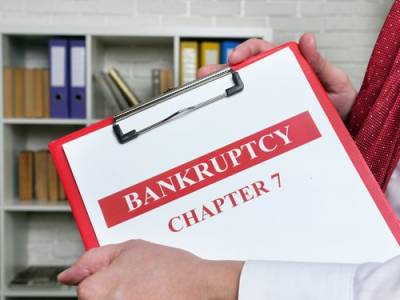
If you are considering bankruptcy, you may have multiple different types of debts, and it is important to know how these debts will be handled during your case. Specifically, if you are planning to file for Chapter 7 bankruptcy, you will want to understand how your unsecured debts will be addressed. This can ensure that you will be able to eliminate your debts successfully and achieve a fresh financial start.
New Texas Law May Help Debtors Exempt Assets From Seizure by Creditors

New laws are passed regularly, and in many cases, they go into effect on the first day of the following year. However, keeping up with changes to the law can be difficult, especially for members of the general public who are not well-versed in legal issues. It can be important to be aware of these changes, because they can affect people's lives in many ways. One Texas law that took effect on January 1, 2023 may play a role in cases involving bankruptcy or other debt-related issues. This law gives debtors more options for preventing creditors from seizing their assets following a legal judgment.
Student Loans Now Dischargeable in Bankruptcy
 Until November of 2022, student loans were nearly impossible to discharge in bankruptcy. The previous standard to discharge student loans required a total inability to repay student loan debt. In practice, this meant a debtor needed to be unable to ever work or earn a living.
Until November of 2022, student loans were nearly impossible to discharge in bankruptcy. The previous standard to discharge student loans required a total inability to repay student loan debt. In practice, this meant a debtor needed to be unable to ever work or earn a living.
Now, the Department of Justice, in close coordination with the Department of Education, is implementing a new process at the outset of adversary proceedings in which debtors seek to discharge federal student loans in bankruptcy. While the bankruptcy judge makes the final decision on whether to grant a discharge, the Justice Department can play an important role in that decision by supporting discharge in appropriate cases. The new process will help ensure transparent and consistent expectations for the discharge of student loan debt in bankruptcy; reduce the burden on debtors of pursuing such proceedings; and make it easier for Justice Department attorneys to identify cases where discharge is appropriate.
When Can a Chapter 7 or Chapter 13 Bankruptcy Be Dismissed?
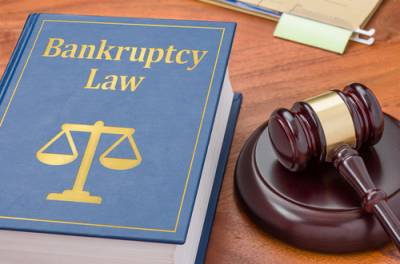 Being in debt can be a difficult experience, and debtors may not only face financial difficulties, but they may need to deal with harassment by creditors or concerns about foreclosure, repossession, or legal judgments. Filing for bankruptcy is often the best way to rectify these concerns, and the completion of the bankruptcy process will allow certain debts to be eliminated. However, debtors will need to be aware of the possibility that their bankruptcy case could be dismissed. By understanding why this might happen, debtors can take the proper steps to avoid any issues that could affect their ability to receive relief from their debts.
Being in debt can be a difficult experience, and debtors may not only face financial difficulties, but they may need to deal with harassment by creditors or concerns about foreclosure, repossession, or legal judgments. Filing for bankruptcy is often the best way to rectify these concerns, and the completion of the bankruptcy process will allow certain debts to be eliminated. However, debtors will need to be aware of the possibility that their bankruptcy case could be dismissed. By understanding why this might happen, debtors can take the proper steps to avoid any issues that could affect their ability to receive relief from their debts.
When Can a Chapter 7 Bankruptcy Be Dismissed?
Chapter 7 involves selling some of the debtor’s assets in order to pay off creditors, and it allows debts to be discharged relatively quickly. A Chapter 7 case can be dismissed if the debtor fails to complete the required credit counseling, does not provide full and accurate financial information, or fails to appear at any court hearings or meetings with creditors. In addition, a case can also be dismissed if the debtor intentionally tries to hide assets or commits any type of fraud during the bankruptcy process.
Can I File for Bankruptcy During My Divorce?
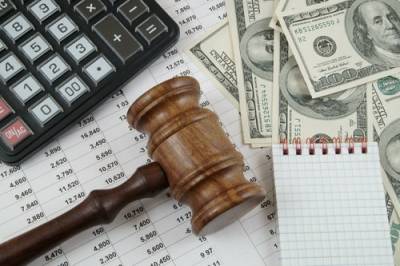 Divorce can be difficult enough in any situation, but there are some cases where large debts for one or both parties may lead to additional financial problems that will make it harder for a person to provide for themselves after ending their marriage. Fortunately, bankruptcy can provide an option for receiving relief from debts. However, if you are considering filing for bankruptcy during your divorce, there are a few things to keep in mind.
Divorce can be difficult enough in any situation, but there are some cases where large debts for one or both parties may lead to additional financial problems that will make it harder for a person to provide for themselves after ending their marriage. Fortunately, bankruptcy can provide an option for receiving relief from debts. However, if you are considering filing for bankruptcy during your divorce, there are a few things to keep in mind.
Debt Division During Divorce
Debts acquired during a couple's marriage (with some exceptions) will usually be split between the spouses during the process of dividing marital property. Depending on the extent of your debts and the other assets you own, you and your spouse may be able to work out arrangements for how to divide debts fairly. However, it is important to understand that if you have joint debts, such as a shared credit card account, you will both be responsible for repaying what is owed, regardless of the decisions you make during your divorce. If debts are allocated to one spouse, and that person fails to pay what is owed in the future, a creditor may take action to collect the amount owed from the other spouse. Because of this, it is often a good idea to determine your options for filing for bankruptcy while your divorce is still ongoing.
Can Bankruptcy Stop the Repossession of My Car?
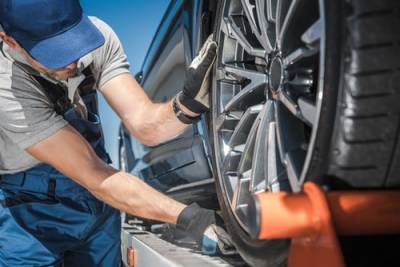 While there are a number of reasons why people consider bankruptcy, they usually involve large debts and financial difficulties that affect a person's ability to meet their financial obligations. Unfortunately, the non-payment of debts can lead to additional difficulties, such as a potential repossession of a vehicle if a person is unable to make payments on an auto loan. If you are struggling to make your car payments, you may be wondering if bankruptcy can help you keep your car. Your ability to avoid a repossession or recover a vehicle that has been repossessed will depend on several factors, including the type of bankruptcy you file, the value of your car, and the amount you owe.
While there are a number of reasons why people consider bankruptcy, they usually involve large debts and financial difficulties that affect a person's ability to meet their financial obligations. Unfortunately, the non-payment of debts can lead to additional difficulties, such as a potential repossession of a vehicle if a person is unable to make payments on an auto loan. If you are struggling to make your car payments, you may be wondering if bankruptcy can help you keep your car. Your ability to avoid a repossession or recover a vehicle that has been repossessed will depend on several factors, including the type of bankruptcy you file, the value of your car, and the amount you owe.
Can Bankruptcy Prevent a Repossession?
There are two different types of bankruptcy, and it is important to understand repossessions and vehicle loans will be treated in each of these options. In a Chapter 7 bankruptcy, also known as a liquidation bankruptcy, some of your assets may be sold off to repay your creditors, and your debts may then be discharged. In a Chapter 13 bankruptcy, also known as a reorganization bankruptcy, you create a repayment plan to repay your creditors over time. This repayment plan will last for several years, and once it is completed, the unsecured debts that still remain will be discharged.
How Are Second Mortgages Handled in Chapter 13 Bankruptcy Cases?
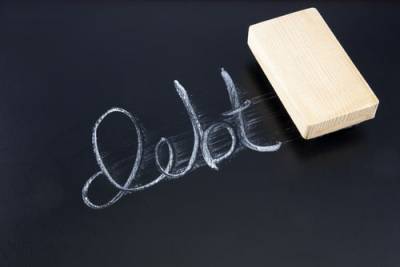 If you are considering bankruptcy, you might be wondering what will happen to your home. While bankruptcy will allow you to discharge, or eliminate, most debts, your home mortgage is a loan that is secured by the equity you have in your home. In other words, the lender uses your home as collateral for the loan. If you fall behind on your payments or otherwise default on the loan, the lender can foreclose on your home. To avoid this, you may choose to file for Chapter 13 bankruptcy, which can actually help you pay off your mortgage over time, rather than having it forgiven. However, if you have a second mortgage or another junior loan on your home, such as a home equity line of credit, you may be unsure about how these loans will be treated during the bankruptcy process. In some cases, you may be able to use a process known as "lien stripping" to discharge these debts, which may reduce the total amount you will be required to repay.
If you are considering bankruptcy, you might be wondering what will happen to your home. While bankruptcy will allow you to discharge, or eliminate, most debts, your home mortgage is a loan that is secured by the equity you have in your home. In other words, the lender uses your home as collateral for the loan. If you fall behind on your payments or otherwise default on the loan, the lender can foreclose on your home. To avoid this, you may choose to file for Chapter 13 bankruptcy, which can actually help you pay off your mortgage over time, rather than having it forgiven. However, if you have a second mortgage or another junior loan on your home, such as a home equity line of credit, you may be unsure about how these loans will be treated during the bankruptcy process. In some cases, you may be able to use a process known as "lien stripping" to discharge these debts, which may reduce the total amount you will be required to repay.
7 Common Myths and Misconceptions About Bankruptcy
 If you are struggling with debt, you may be looking at different options for getting your finances back on track, including filing for bankruptcy. However, you may have heard some things about bankruptcy that make you hesitant to file. It is important to get the facts before making any decisions about your financial future. There are a lot of myths and misconceptions out there about bankruptcy—and they deter many people from taking action when necessary. Here are some of the most common myths about bankruptcy, debunked:
If you are struggling with debt, you may be looking at different options for getting your finances back on track, including filing for bankruptcy. However, you may have heard some things about bankruptcy that make you hesitant to file. It is important to get the facts before making any decisions about your financial future. There are a lot of myths and misconceptions out there about bankruptcy—and they deter many people from taking action when necessary. Here are some of the most common myths about bankruptcy, debunked:
-
Myth #1: Bankruptcy Will Ruin Your Credit Score
Truth: While a bankruptcy filing will stay on your credit report for seven to 10 years, this does not mean that your credit will be completely ruined. In fact, many people who file for bankruptcy see their credit scores increase within two years after their debts are discharged. If you are careful about using credit and make an effort to pay bills on time after your bankruptcy, you will most likely see your score continue to rise.









